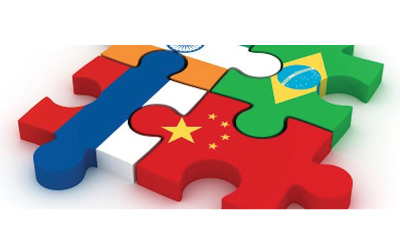The emerging markets were being blamed for much of the volatility that we saw in global financial markets at the beginning of the year. So why is Steward Wealth overweight emerging markets in our Global Multi Asset Pro-Active portfolios?
Why the volatility?
According to the media, financial markets were concerned that the winding down, or tapering, of quantitative easing (QE) by the US Fed would lead to interest rates rising in the US, which in turn would see capital flow out of the emerging markets back to the US as investors rebalanced. Whilst this is probably true, the Fed’s moves have been very well flagged and we believe the effects on the emerging markets are unlikely to be as bad as a lot of the media commentary would have you think.
This is not a currency crisis a la 1998
Some of the more dramatic commentators suggest that we risk seeing a repeat of the 1998 Asian crisis. Back then many of the Asian countries had enjoyed enormous capital inflows as investors sought exposure to the higher rates of growth on offer. However, those same Asian countries had their currencies pegged to the US$. When the capital started to flow back out again, as was always going to happen, those currencies collapsed and took the economies (and currency, bond and stock markets) with them.
Now those same Asian economies are in a far stronger financial position. It is important to note that there is considerable variance between the 21 countries that comprise the MSCI Emerging Markets Index, but it is fair to say that most of them have a lower overall debt to GDP ratio than much of the developing world, as well as much stronger current accounts because they have a stronger export sector. That becomes evident when you consider that the five largest constituents, China, South Korea, Taiwan, Brazil and South Africa, account for more than 65% of the index.
Also most of the emerging market nations now issue sovereign bonds that are denominated in their own currency, rather than in US$. That means they are far less leveraged to investors pulling their money out.
Stephen Grenville of the Lowy Institute wrote a good article on this subject, which you can read here.
Strong fundamentals
Many of the emerging market countries continue to boast stronger economic fundamentals than their developed nation counterparts. A standout is demographics, where the emerging markets not only have the lion’s share of global population but there is a larger portion of those populations in the younger, productive age groups. This is shown in the charts below.
Source: Schroders, The Case for Emerging Market Equity
The wealth of those populations is also growing which is changing spending patterns. Emerging markets consumption spending overtook that of the US back in 2008 and the gap is forecast to continue to grow. Likewise investment spending as a proportion of GDP is higher in the emerging markets and is also forecast to continue to grow.
Global brands and world class companies
The top companies that comprise the MSCI Emerging Markets Index are household names, like Samsung (US$132bn market capitalization), Taiwan Semiconductor (US$85bn), Tencent Holdings (US$72bn) and Hyundai (US$34bn). These are world class companies that offer an entirely different exposure than what is otherwise available to Australian investors.
The emerging markets index is cheap
The current forward PE ratio for the MSCI Emerging Markets Index is 9.6. That compares to the S&P500 on 15.2. That is not to say that the US is especially expensive at the moment, it’s more to say that at a 37% discount, the emerging markets are cheap
The chart below from the February 3, 2014 edition of the FT shows that emerging markets are trading at a decade high discount on a price to book valuation compared to the developed markets.
Take a long-term view that looks past the noise
We have commented in the past that the plethora of media searches for a day to day explanation of why financial markets do what they do, and often those explanations are no more than a bad guess. But as bad as they can be, there is no denying the talking heads can have a strong influence on short-term sentiment. It is times like these that we like to remind our clients of one of the wisest of Warren Buffet’s many wise aphorisms: be fearful when others are greedy and be greedy when others are fearful.
We have no doubt that there is going to be more volatility in the emerging markets, both in the near term and the medium term. Since it is impossible to time these things we rely on our Pro-Active Asset Allocation approach to indicate when a sector is over or undervalued and on choosing the right investment vehicle to manage the volatility. At the moment, emerging markets are cheap relative to developing markets. That means provided the fundamentals stack up, we are more likely to overweight the emerging markets versus the developed markets, which they do in this instance.
As we always take a long-term view on our portfolio investments, we are comfortable seeing the recent sell off in emerging markets as an opportunity to gain exposure to a growing and dynamic part of the global financial markets.







